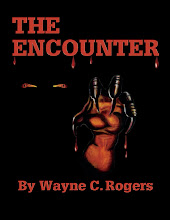I’m in the process of reading Full Dark, No Stars by Stephen King. I usually don’t review his books because a million other people are already doing that and every novel and anthology he gets published is guaranteed to sell a billion copies or more. Full Dark, No Stars, however, is proving to be that exceptional piece of work that makes me want to shout out from a roof top about how damn great it is. Of course, I’ve only finished the first novella, 1922, so I don’t know how good the other three stories will actually be. My guess is that they’ll be a damn good as the first one! So, instead of waiting to finish this anthology of four novellas, I’m going to talk a little bit about 1922 right now, and how Stephen King has written a story that brings back those wonderful memories of when I first discovered him back during the late seventies.
1922 is the sad and horrible story of Wilfred James, a farmer in Nebraska during the year of, you guessed it, 1922. Wilfred (or Wilf as he’s generally referred to) owns a patch of land that he grows his crops on. His wife, Arlette, also own a piece of land that her deceased father left her. A hog butchering company wants to buy it from her because of the river that runs across the property, and Arlette wants to sell it to them and move to Omaha with the money to open a dress shop. Wilfred, however, loves his land and dislikes the idea of living in the city. He wants to stay on the farm with his young son, Henry. Over a period of time, Wilfred and Arlette get down and ugly with each other about selling the property or continuing to live on it. This is definitely a battle of the minds. Arlette hates the farm and the life of a farm wife. She wants more and isn’t afraid to go after it. Everything, of course, changes for the worse when Wilfred kills her one night by cutting her throat and tossing her body down an old, unusable well. He talks his son into helping him do the dirty deed. Both men of the house soon find themselves having to deal with their unspeakable actions and the unforeseeable consequences. You see, Arlette may be dead and stuck in a well, but this is a Stephen King story, and dead people have a way of coming back when you least expect it and tormenting those who murdered them… tormenting them in the most terrifying ways!
Now, I haven’t given anything away by mentioning the murder of Arlette James. Wilfred, the narrator of the story, discusses it on the first page. That’s just a hook to grab you by the nose and to lure you in. Stephen Kings does that, too. I found myself hooked line and sinker in the first couple of pages. You see Wilfred isn’t really a bad person. He just didn’t see any way out of a no-win situation. If he could have changed things afterwards, he most certainly would have done it. Mr. King creates such believable characters here that you have no choice but to accept their plight and the horrors that soon arrive. Each character (major and small) is brought to life in 1922 in such a way that you easily find yourself living within the story and experiencing many of the emotions that poor Wilfred and the others display. For me, 1922 was a return to the dark, haunting stories by King that he wrote during the early part of his career. This brought back fond memories of the short stories in Night Shift, Salem’s Lot, The Shining, The Stand, The Dead Zone and Pet Sematary to name a few. This is also writing at its best. Not a word is wasted in 1922. The characters, the plot, the dark theme about revenge, and the horror that consumes those within the story, make this one of Stephen King’s best pieces of fiction. This is the type of story that made the author so famous back in the seventies and eighties. This is the type of story that makes reading fun and addictive!
If you’ve been a long-time constant reader of Stephen King’s fiction, then go out and pick up a copy of Full Dark, No Stars and allow the Maestro to perform his magic for you. You won’t be disappointed with 1922. This novella alone makes the cost of the book worthwhile. Now, I have three more stories to read and to write about. Oh boy, oh boy!
Thursday, November 18, 2010
Subscribe to:
Post Comments (Atom)



No comments:
Post a Comment